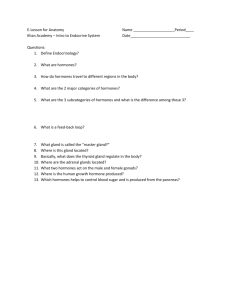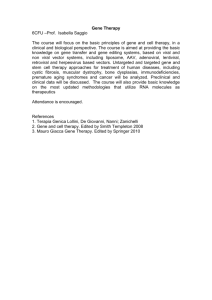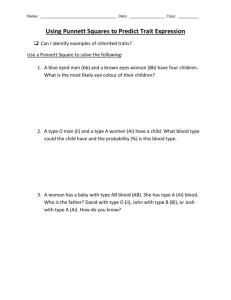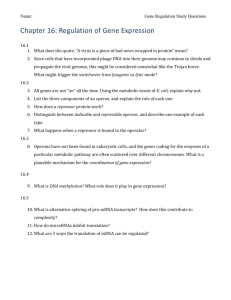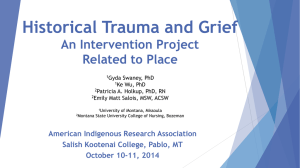“The Neuroscience of True Grit”
advertisement
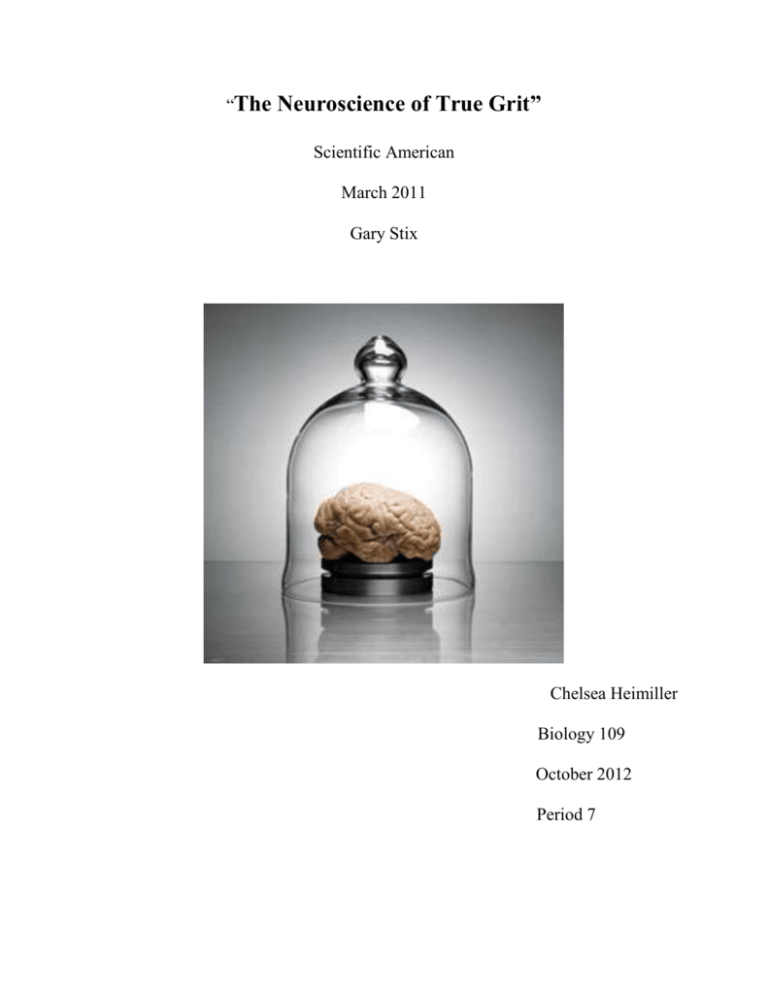
“The Neuroscience of True Grit” Scientific American March 2011 Gary Stix Chelsea Heimiller Biology 109 October 2012 Period 7 The human brain is surprisingly resilient, even in the most difficult times. When one experience something traumatic, such as a death in the family, or fighting in a war, our bodies go into shock and one can be disorientated. However, as time passes the human brain recovers completely from what one would think was permanent damage. In this article, Stix shows how the human brain is much stronger than what we at first thought. After a disaster, the body releases biochemical (hormones,) that work together with the body’s genetics and behavior in order to help return the body to emotional equilibrium. In 1917 Sigmund Freud wrote about the necessity about “grief work,” in other words this is when one focuses on what they have been mourning and they try to work on coping with the death of the person that they have been mourning. This worked for a while, but eventually scientists became curious and wanted to know why this worked and other ways to help people in this situation. Resilience is defined as the ability to bounce back after something traumatic in a short period of time. Many different parts of the brain contribute to this. The hypothalamus links the nervous system and the endocrine system. The endocrine system releases a hormone called corticotropin when the body is stressed, this causes fight or flight. If you are constantly stressed your body begins to release other hormones such as cortisal, which is produced by the adrenal glands. These hormones can cause brain damage, particularly in the hippocampus and the amygdala, this is what causes people to become what we consider to be “emotional and physical wrecks.” However, certain biochemical can actually lessen the effects of stress hormones and provide more resilience. For example, DHEA (dehydroepiandrosterone,) lessons the effects of cortisol, and helps to reduce anxiety. Elevated levels of this also helped reduce the risk of posttraumatic stress disorder in war veterans. It is also believed that a drug that boosts DeltaFosB might protect against depression that is caused by loneliness, because of studies that were performed on mice. The 5-HTT gene is considered to be a “resilience gene.” Research has shown that people with a lengthier version of this gene are better able to cope with stress and resist depression. This caused a lot of confusion in 2006 because many people did not understand how stress could be linked to one gene. However, later evidence no longer supports this claim. George A. Bonanno started running experiments in the early 1990’s about how people respond to emotionally to traumatic events. At this time it was believed that the loss of someone important to you was a cause of great emotional pain and that it left permanent mental scars, similar to the Freudian theory. He discovered, however, that in a matter of months there were absolutely no traces of mental scars. He also thought that modern day grief handling can make things worse and can cause permanent mental damage. This was especially shown when a group of people has gone through a particularly traumatizing experience such as the Columbine shootings or the 9/11 attacks. Modern day techniques involve group counseling or “debriefing,” but if even one person in this group is stressed or upset, it can cause the rest of the group to begin to feel unsettled. Also when people are part of a traumatizing situation, the stress does not usually set in until after the event. The human brain allows humans to put away all feelings until later, allowing them to still be able to function in these situations and save their lives and possibly other people’s. The human brain is very resilient, but psychologists and scientists have yet to figure out what exactly make the brain this way. While they have many theories and even some facts, they have just skimmed the surface and still have a long way to go before they understand the way that the human mind works. Critique Overall I really enjoyed the piece. It was well written and the topic was thoroughly explained. It provided many details that I did not yet know and helped me to understand them. However, it could be confusing at times, as sometimes the information was thrown at you in large chunks of confusing words. Maybe if my language was of a higher level I would have been able to better understand it. I still found it interesting though, especially something that we think can help a person a lot, such as grief counseling may cause more harm than good. This gave me a whole new perspective on how the mind works and handles stress. Also how the brain works to inhibit the chemicals that it also releases so that it will not cause damage to the brain seems really interesting and I wish that the article had gone more in depth with it. Also the scientists in the article seemed very intent on trying to prove what someone else had already proved. Many of these experiments also seemed to be concerned with war veterans and post-traumatic stress disorder. With good reason too, as this is something that many war veterans suffer from. Overall, I think that this was a very good article, and maybe in the future when I know more about this topic, I might enjoy this article more.



